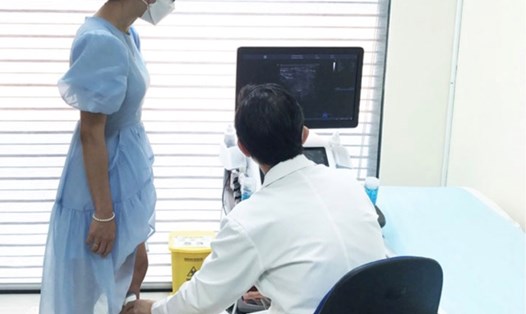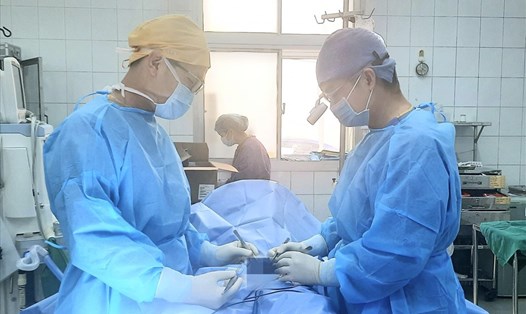Doctor Nguyen Van Phuc, Department of Andrology, 108 Central Military Hospital, said: Men's venous expansion is one of the common male problems and can affect men's physiological and reproductive abilities. However, varicose veins sometimes have no obvious symptoms, so early detection and monitoring of the condition can help with timely treatment, avoiding unwanted complications.
"Steritic varicose vein is an abnormal dilation of the pair of varicose veins in the scrotum due to reflux of blood from the left renal vein and from the right main vein to the internal streatic vein. This is a fairly common condition in men, especially during their reproductive years. When the veins dilate, blood flow is not circulating effectively, leading to uncomfortable symptoms such as scrotum pain, a feeling of heaviness and can affect physiological ability and fertility," Dr. Nguyen Van Phuc added.
Many studies show that the rate of streptococcal disease occurs in 40% of men with primary infertility and 80% of cases of secondary infertility. Stematic varicose veins cause scrotum pain, testicular atrophy, reduced sperm quality and quantity, and reduced testosterone, thereby seriously affecting reproductive health, sexual health and quality of life.
Although many cases of sentinel varicose vein expansion do not have obvious symptoms, some people may experience dull sound or pain in the scrotum, especially when standing for a long time, strenuously or in hot temperatures; Feeling heavily or uncomfortable in the scrotum; The tumor is soft or thick when touching the scrotum; Reduced physiological and reproductive ability, because the varicose vein can disrupt the production of sex hormones that affect physiology, increase the temperature of the testicles, release free oxidative radicals... affecting the quantity and quality of sperm.
According to Dr. Nguyen Van Phuc, self-checking for varicose veins at home can help you detect unusual signs early, especially when varicose veins do not cause pain or pain. Regular self-examination helps you monitor your health status and promptly detect if there are signs of disease, thereby seeking medical intervention when necessary.
If during the examination, you notice any unusual signs such as: Long-term pain or pain in the scrotum; Scrotum pain when standing for a long time or moving; appears a soft tumor in the scrotum; Feeling heavier or uncomfortable in the scrotum; pain may decrease when lying down... so see a doctor for examination and accurate diagnosis.








